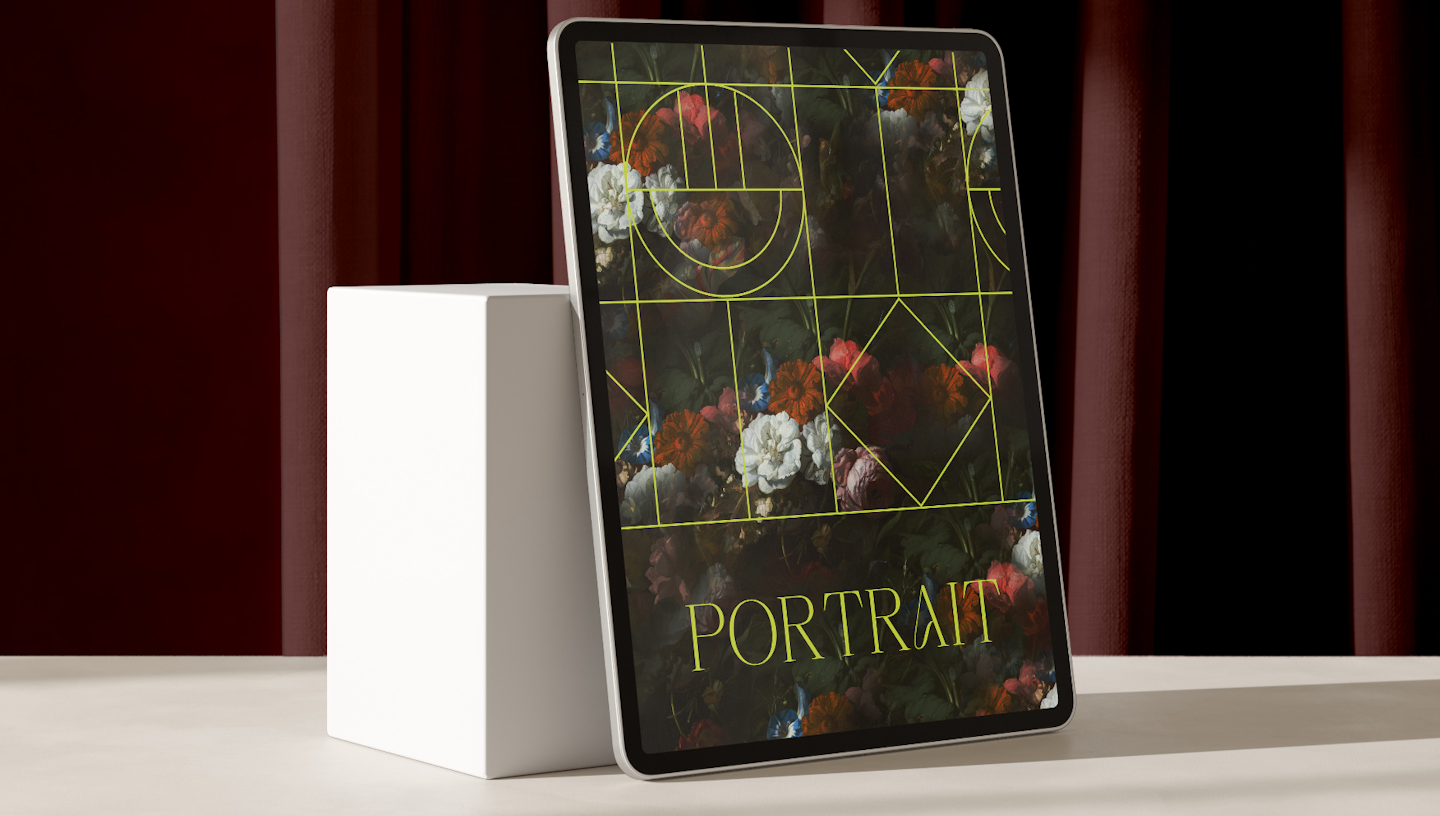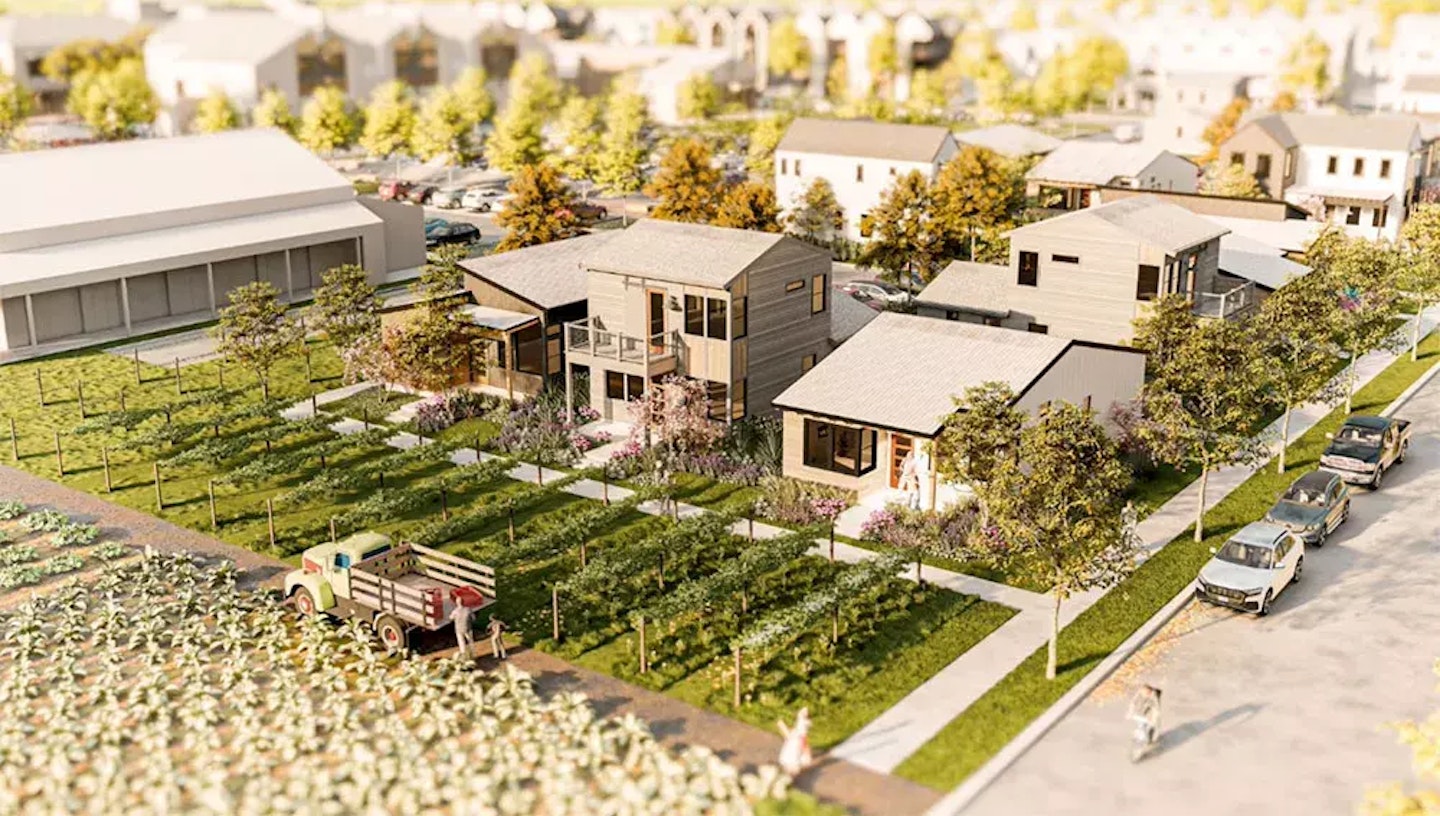
I speak this theme often, but when we see a brand in the wild that is executed with thoughtfulness and enriched with a story that connects on a deeper level, one cannot argue that it doesn't add a secret sauce that's hard to deny.
We feel this intuitively, on meaningful levels, and often it's a purely emotional response that hits us.
You walk a property, and you feel it.
You browse a website and think, "Yeah, they get it."
My crew at Authentic injected this life and deeper meaning into Portrait, a new project landing in Chicago's Uptown neighborhood.
By leaning into Uptown’s storied history as an entertainment hub, acknowledging its past difficulties and contemporary diversity, and standing out from the crowd with a distinctively modern twist, Portrait captures the essence of Uptown Chicago.
Before the ‘20s were roaring, Uptown was the heart of the American film industry. The neighborhood once dazzled the nation with storied hotels, grand theaters, and luxury apartments.
This brand leans into the thespian energy of the early 20th century, marrying the opulent maximalism of art deco with the more familiar botanical patterns of modern design. It at once brings excitement, anticipation, and connection.

Over the last few weeks, I had the opportunity to learn more about the master-planned community project called Indigo, a new vision set to take root in Richmond, Texas.
Having the chance to speak with many developers and visionaries in the industry, the project didn’t strike me as unique initially, but that quickly changed.
Throughout a few conversations that led up to our most recent Transforming Cities Live event, I became more fascinated by the unique makeup of this particular development effort.
We all know the “standard” multifamily projects out there that aim to create community: x-levels of apartments, maybe some retail or mixed-use applications at the ground level, and here and there, some activated outdoor space on the roof or at ground level.
That’s what we’ve come to know, and that’s what most expect.
When I dove into the specifics of the Indigo project, my eyes opened to an entirely new take on the development context:
Throughout our conversation, we discussed their thesis and overall narrative for how each piece builds onto the next.
Said more than a few times, it’s powerful.
The level of thinking and detail that has gone into planning for Indigo makes my eyes cross a bit, given that the range of decisions and goals slide from deeply impactful local farming techniques to housing options that suit all age groups to the downtown that emphasizes incremental retail development and business ownership.
Indigo is a sum of its-parts painting, with intention-filled broad strokes that, when each viewed individually, reveal additional layers of complexity that somehow seem simple on the surface.
And yet, it all just… makes sense.

Discover why boutique multifamily buildings outperform their larger competitors by focusing on curated experiences, intentional design, and emotionally resonant branding.

Discover how data-driven branding strategies can accelerate leasing, boost NOI, and turn your multifamily property's identity into a measurable performance asset.

Your brand’s reputation is built—or broken—at the leasing desk. Are you ready to unify leasing and marketing to protect it?

Remember when we all DIY dip-dyed our hair in Kool-aide and learned just because you can do it yourself doesn't mean you should? This week we're digging into the hidden costs of DIY'd branding.
A simple read in under 5 minutes, delivered to your inbox Saturday mornings.
A simple read in under 5 minutes, delivered to your inbox Saturday mornings.